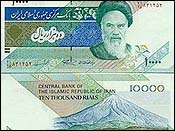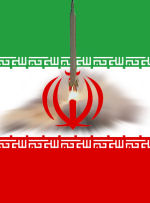
ABOVE: Diocenyr Ribamar
Barbosa-Santos
Diocenyr Ribamar Barbosa-Santos, an airline mechanic, was recently charged with violating the Iran sanctions in connection with a wildly improbable deal in which the mechanic was accused of brokering seven Airbus commercial passenger jets to Iran for $136.5 million. Reading the criminal complaint it seems that Barbosa-Santos’s discussions with a federal uncover agent about his plan to obtain seven Airbus passenger jets in China and sell them to Iran were more delusional fantasies by an inept schemer with no business background than any actual, executable plan. Barbosa-Santos had about as much of a chance of buying jets in China and selling them to Iran as he did of convincing the Park Service to dismantle Mount Rushmore and ship it piece by piece to Tehran.
Among other things, Barbosa-Santos seemed to be completely unable to even figure out how Iran would be able to pay him for the planes. In one of his first conversations with the eager undercover agent, Barbosa-Santos admitted to his tiny little problem in “finding a bank who would accept the transaction,  …  accept a letter of credit from Iran and issue a bank guarantee in the amount of 136.5 million dollars.” Ya think? Not to mention that there is no evidence in the criminal complaint that there was a single person in China who was prepared to engage in a $135 million dollar deal with an airplane mechanic with no business background.
Almost everything recounted in the criminal complaint consists of conversations between Barbosa-Santos and the undercover agent about how Barbosa-Santos would like to make such a deal and how he would like the undercover to help him out. Of course, it’s hard to premise a criminal indictment on idle talk and that’s where the phone call comes in. After one of the meetings between Barbosa-Santos and the undercover agent
a call was placed from SANTOS’ cell phone outbound to an international number (011) 98-0912120029 … The call lasted for 7 minutes and 12 seconds. Computer checks revealed that the country code for IRAN [sic] is 98.
That’s it. That is the only thing in the entire criminal complaint that is something other than Barbosa-Santos talking to the agent about his aspirations to make the deal. And we don’t even know with certainty that the phone call to Iran involved Barbosa-Santos’s madcap idea that he could act as a big-time airplane broker. Â Somehow it seems that a phone conversation about a multi-million dollar jet deal might take just a little bit more than “7 minutes and 12 seconds.”
Importantly, the criminal complaint doesn’t charge Barbosa-Santos with an attempt to violate the Iran sanctions or even a conspiracy to violate the Iran sanctions, which would seem to make more sense in a case where not a single plane of any value, not even a used Piper Cub, flew from China to Iran. No, Barbosa-Santos is accused of  “acting as a broker in the financing of goods on behalf of Iran,” even though not a single bank any place in the world had seen fit to even discuss the matter with the mechanic and even though there is not a shred of evidence that there was anyone in the world willing to sell Barbosa-Santos as much as pair of roller-skates, much less seven commercial passenger jets.
There is no question that Barbosa-Santos is criminally stupid, even if not actually a criminal. But even supposing that picking up the phone to call Iran after telling a federal agent he would like to sell planes to Iran were a criminal act, why is the federal government wasting any time on this? Aren’t there actual threats to national security and public safety out there that can keep the folks at Homeland Security busy these days?

 Posted by
Posted by  Category:
Category: 

 Like Indiana Jones, I hate snakes, and so doing this post (and especially the picture at the right) was a bit unsettling, but the story was just too good to pass up. According to an
Like Indiana Jones, I hate snakes, and so doing this post (and especially the picture at the right) was a bit unsettling, but the story was just too good to pass up. According to an  The Office of Foreign Assets Control (“OFAC”) has taken the old Iran sanctions regulations, torn them up, thrown them away and issued a
The Office of Foreign Assets Control (“OFAC”) has taken the old Iran sanctions regulations, torn them up, thrown them away and issued a  The recently passed
The recently passed  I know you will all sleep safer once I tell you about the recent
I know you will all sleep safer once I tell you about the recent 

